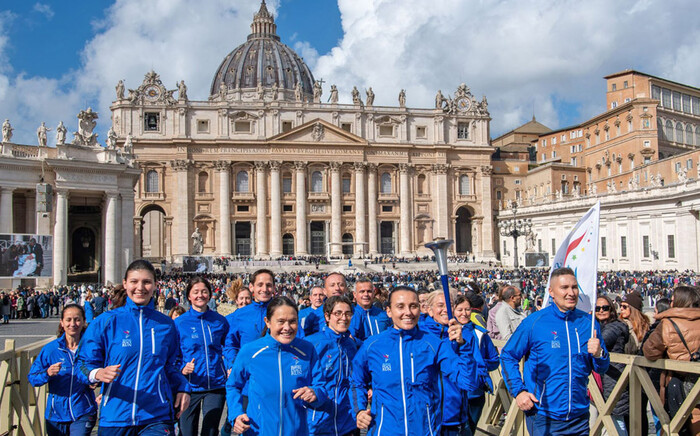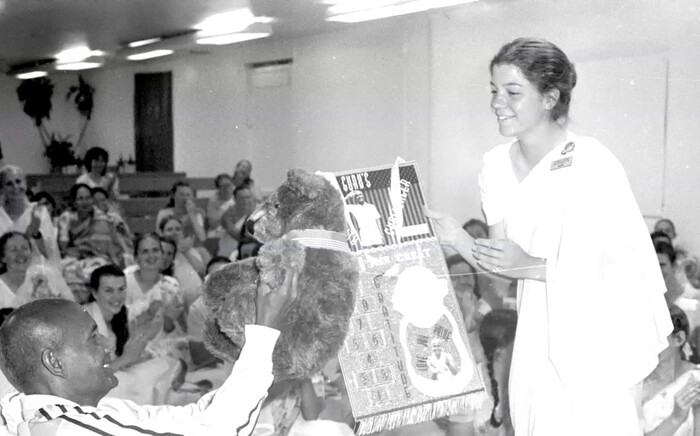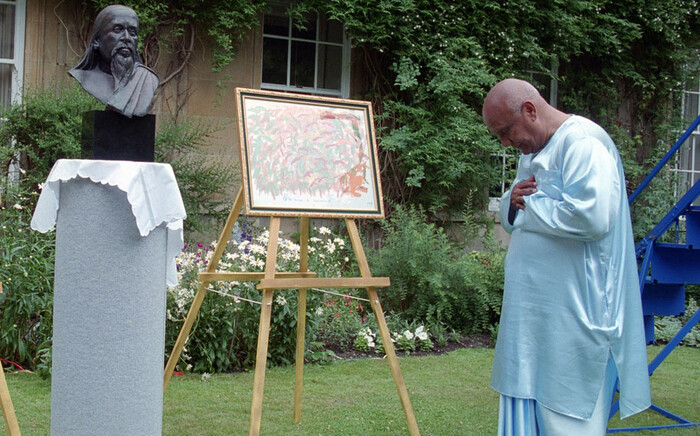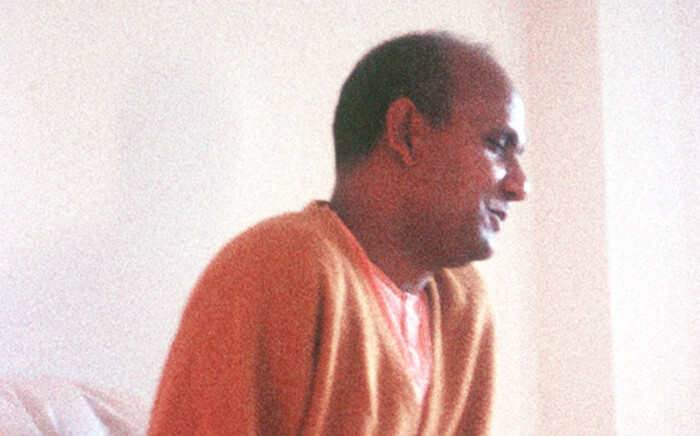As well as the questions and answers below, this section also contains the transcript of Our Path, a talk Sri Chinmoy gave in London to his students in 1970 as well as excerpts from The Master and the Disciple, a very popular book written by Sri Chinmoy about the spiritual teacher-student relationship. There are also writings on many other aspects of Sri Chinmoy's philosophy and the spiritual disciplines that he encouraged his students to follow - see here...
The following questions and answers are all sourced from Sri Chinmoy's books - you can find links to the relevant book page on Sri Chinmoy Library (a site containing over 1100 of Sri Chinmoy's 1500 books) at the end of each question.
Question: Is what you teach a religion?
Sri Chinmoy: No, mine is a path. A path cannot be a religion, but it gladly accepts the votaries or followers of all religions. Since it is a path, anybody can follow it. People from different countries, different cultures and different backgrounds can walk along the same path, but perhaps they will not be able to follow the same religion. One can walk along the spiritual path regardless of religion, regardless of culture, regardless of inner or outer growth.
(Source: My Meditation-Service At The United Nations For 25 Years)
Question: Do your teachings constitute a religion?
Sri Chinmoy: No, I do not preach any religion. I teach Yoga and philosophy. Each religion is confined to a group: Hinduism, Buddhism, Christianity and others. Yet any person belonging to one of these religions can accept our path without detriment to his own religious background....I think that any person who wants to realise God will not have any difficulty in accepting our path. Our path is the path of concentration, meditation and contemplation. A person can follow this path and remain in his own religion.
Question: If you are preaching something about God, that is religion, not philosophy. Philosophy knows no God.
This is an erroneous concept of Western philosophy. All Indian philosophy, the Vedic Scriptures begin with God, Brahman, the Infinite, the Supreme without a second. Indian philosophy starts with the Vedas, The Upanishads, the Bhagavad Gita and others. Modern Indian philosophy, too, begins and ends with God...The Western mind finds it difficult to understand Eastern philosophy because in the East, philosophy is not separated from the true spiritual life and yoga. In the West, this is not the case. Here they say, "This is religion, that is philosophy, this is life. All are something different." In India, spirituality has a perfect right to call itself philosophy and philosophy to call itself spirituality. Both of them are interlaced.
(Source: Earth's Cry meets Heaven's Smile, part 3)
Question: Can your teachings be received by any person, or are there any qualifications that one must have?
Sri Chinmoy: In order to become a disciple of mine one has first of all to be very sincere and earnest. One has to feel that the spiritual life is not the life of pleasure and enjoyment: it is the life of sincerity, simplicity and perfection. Any seeker who is sincere is meant for the spiritual life. But a person may be extremely sincere and, at the same time, he may not be meant for our path.
Our path is the path of love, devotion and surrender. We do not say that because he is not following our path he is not fit for the spiritual life. Millions of people on earth are really fit for the spiritual life, but they are not meant for our path precisely because they do not care so much for the love, devotion and surrender that we want to practise in our lives. But they will be suitable for many other spiritual Masters and other spiritual paths.
Choosing a path is like choosing a college. Two colleges may be of an equally high standard, but one will be more suited to a particular student than another. Yet both are serving mankind with knowledge. In a similar way, ours is only one path, not the only path. It is one path that leads to the Goal. If you follow another path definitely you will also reach your destination. The destination is always the same.
(Source: The Inner Journey)
Below you will find links to the other talks and answers in this section.






















